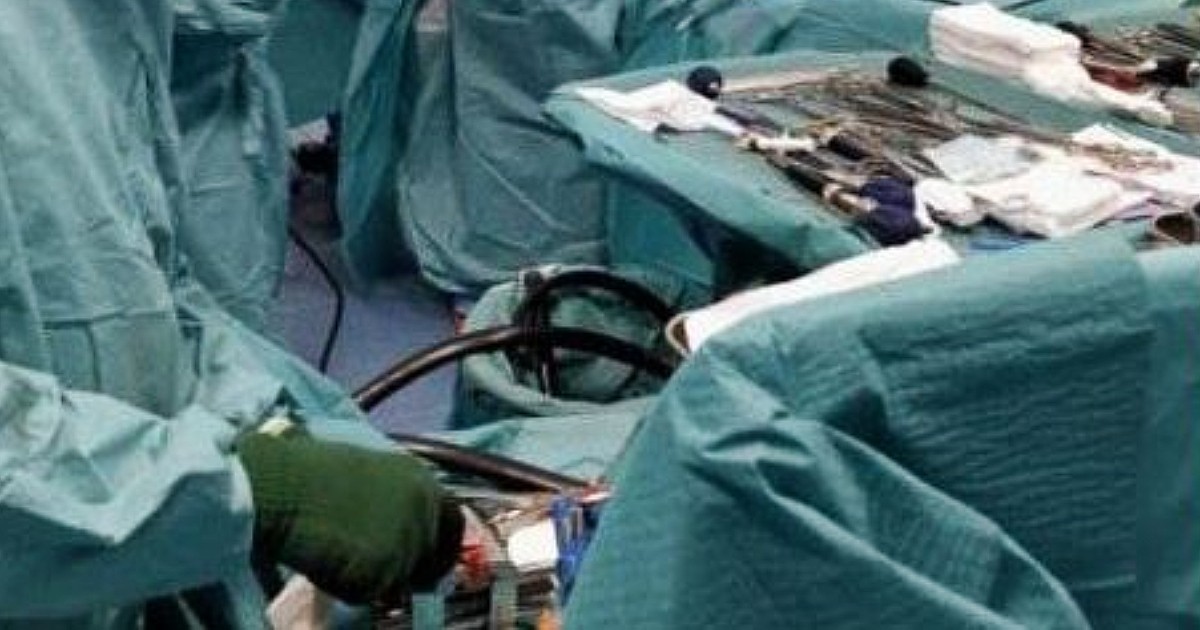“New evidence that surgeons have become executioners in China“. It has been published since Wall Street Journal last May 31 an article in which it is told how, thanks to a meta-analysis of more than 124 thousand scientific publications and the study of over 2800 documents, cases of organ transplants emerged that occurred before the “donor” was legitimately declared brain death. The hypothesis is that those donors were detained sentenced to death: “Clinical reports tell dozens of cases in which organ donors were alive when the operations started ”, the doctors write Jacob Lavee e Matthew P. Robertson who signed the article that appeared in the comments section of the economic and financial newspaper. This practice, officially discontinued in 2015 and whose true extent is unknown, was revived in a study published on April 4 in the scientific journal American Journal of Transplantation.
Over the years, starting in 1988 when a Hong Kong newspaper South China Morning Post for the first time reported on cases of explants in theCanton hospitalseveral studies and journalist inquiries (Abc, Bbc and other newspapers) have collected stories and documents on a practice that was first admitted with great difficulty and then officially banned from Beijing in 2015. In a report by an Asian NGO in 1994, a policeman revealed that if there was “the eyes to be taken, the condemned” were “killed with a bullet to the heart if, on the other hand, you want to take the heart, the prisoner receives a bullet in the head” . Over time it emerged that the inmates put to death supplied about 65% of the organs used. A phenomenon prompted many foreigners to look for an organ in China to buy for an implant.
I STUDY – The researchers, assuming that the rule for an explantation is that the donor is dead and that it is fundamental for the ethics of transplants, recall that the removal of organs must not cause death: for the donor, first, death must be declared. cerebral. Scientists then planned and organized one forensic review of 2838 documents taken from datasets in 124.770 publications on operations and transplants in Chinese. The algorithm found in 71 of these nationwide reports that brain death it could not have been declared correctly. “In these cases, the removal of the heart during the organ harvesting must have been the cause of the donor’s death” ie it was the removal that caused the death. “Since these organ donors could only have been prisoners, our findings strongly suggest that doctors from the People’s Republic of China participated in the executions by organ harvesting.”
THE METHODOLOGY – Therefore, 71 “problematic” brain death statements were documented prior to heart and lung sampling. According to the doctors who wrote the study, those “donors could not have been brain dead before organ harvesting, the brain death claim could not be medically valid. It follows that in these cases the death must have been caused by the surgeons “who procured” the organ “. To those who ask why Chinese doctors have published articles in which they actually reported abuse, the researchers reply that the articles are written in Chinese and produced for a small audience of colleagues. “Collect, organize, discover and explain the meaning of these data requires a combination of Chinese language experience, technical proficiency and knowledge of heart and lung transplant surgery. It is unlikely that the authors predicted that these reports would be compiled and analyzed when they wrote them over a decade ago. “
THE DOUBT – Another very important point concerns the fear that these were not the only cases because it is not possible to establish how many articles have been excluded from the meta-analysis for a series of reasons relating to the Chinese language and the “choice to focus only on very string matches. narrow and therefore limiting the number of articles to be examined closely to a few hundred “. In addition, it is not possible to establish “how many total heart and lung transplant surgeries actually translate into publications … Of these, an even smaller number describe in detail how donors are procured; and of these, only a part describes the procedures we have discovered “. Doctors also recall that the most recent medical document found dates back to 2015. Among the hypotheses is “that the reform program” has “effectively ceased the use of prisoners, and therefore these abuses”, the less alternative is that “activists and human rights researchers denounced the violations in September 2014 and Chinese officials attentive to international perceptions were able to order to stop the publication “of the studies.
THE WITNESS – A first direct testimony on the removal of organs from executed death row inmates was given by a Chinese doctor he asked political asylum in the United States in 2001. In the application for the granting of asylum, the doctor, a dermatologist, told how he had corneas and removed the skin from over 100 inmates who had been put to death, including one who “had not yet died at the time of the operation. “. The doctor talked about the removal of organs by other doctors at the hospital he worked for who then sold the organs at exorbitant prices. The hospital, according to his account, he paid $ 37 to the prison guards for each execution report. The organs removed were then sold to wealthy patients: a kidney could yield more 15 thousand dollars. And it is worth remembering that over the years the People’s Republic of China has carried out more death sentences than any other country in the world.
I study
